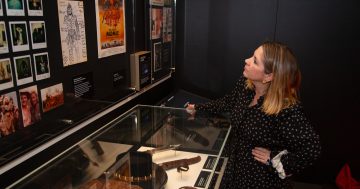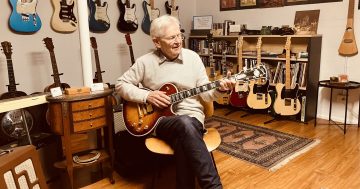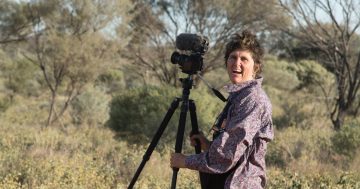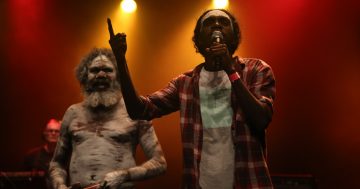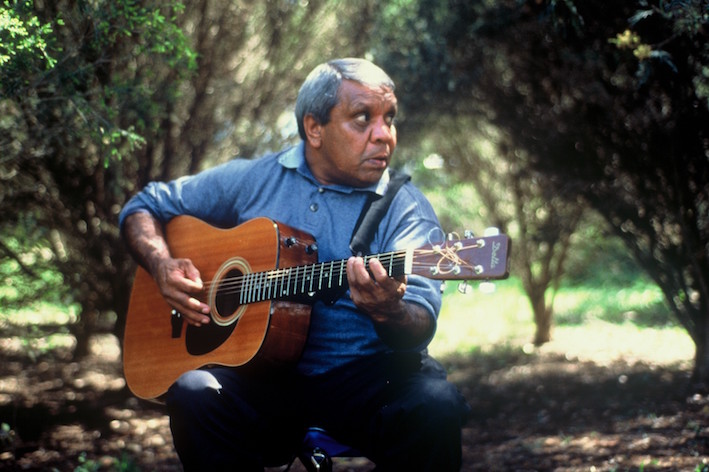
Lionel Rose was a national icon even before he pursued a career in music. Photo: National Film and Sound Archives.
CONTENT WARNING: Aboriginal and Torres Strait Islander people should be aware that this article contains images and names of deceased persons.
“Here’s a story you probably don’t know,” Clinton Walker promises Canberrans attending the screening of Buried Country on Friday (7 July).
A music journalist and historian, Clinton co-wrote the critically acclaimed documentary about the rich history of Aboriginal country music more than two decades ago.
Based on his book of the same name, the film is narrated by Murri man and singer-songwriter Kev Carmody and shot by Kaytetye man and cinematographer Warwick Thornton (from Samson and Delilah fame). It features rare images, recordings and interviews with First Nations musicians such as Jimmy Little, Harry and Wilga Williams, Bob Randall, boxer-turned-singer Lionel Rose and Troy Cassar-Daley.
“All those characters involved in Buried Country were completely involved in its conception. It was about them telling their stories, and I just let them go,” Clinton says.
“The songs and the music were fantastic and that’s what’s always driven me before anything else, before politics or anything else.”
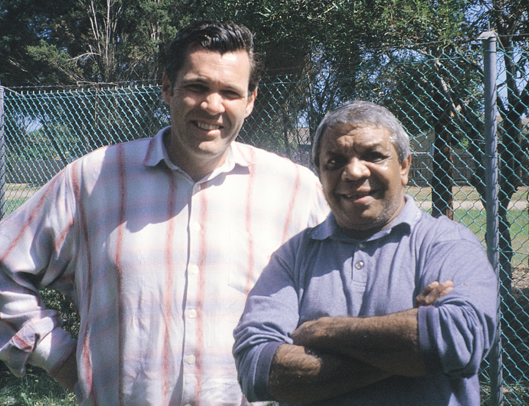
Clinton Walker with Lionel Rose in 1999. Photo: Clinton Walker.
The National Film and Sound Archive (NFSA) has enhanced the film to HD-quality. Wiradjuri singer and guitarist Jerikye Williams will be performing to mark its first screening in more than 10 years as part of the NFSA’s NAIDOC Week Ngara program, curated by Wodi Wodi woman, filmmaker and Indigenous connections manager Gillian Moody.
“[NFSA] is committed to sharing Aboriginal and Torres Strait Islander stories that represent the achievements, the celebrations and the difficult conversations of our past,” Gillian says.
But Clinton remembers a very different response when he was first pitching the Buried Country book, which preceded the documentary, to publishers in the late 1990s.
“One of them said, ‘I can’t sell a book with an Aboriginal person on the cover’, and another one said, ‘I don’t think any of that music’s any good’,” he remembers.
“That was the point at that time. Nobody outside the Aboriginal community had any idea of this music, so what they were talking about that they didn’t like, I don’t know.”
Although Clinton already had his name to five published books at the time and had been a music journalist since the early 1980s, he says he “really had to push hard” to get the book to print.
He believes the combination of country music’s blue-collar, working-class reputation and the fact Aboriginal people were the ones doing it was a “double whammy” in the eyes of publishers.
Clinton remembers thinking, “If I don’t get this down, it’s going to disappear”, and in 2000 he found a willing publisher in the self-described “radical political publishing house” Pluto Press.
The film adaptation encountered far less resistance and was funded by Film Australia (now Screen Australia), Clinton says, through a combination of “serendipity, timing and luck”.
The person who OK’d the film was the sister of late guitarist, songwriter and producer Steve Connolly, who had produced Archie Roach’s debut album, Charcoal Lane.
“When this proposal crossed her desk, she was not indifferent or hostile to it. In fact, she was very keen,” Clinton says.
More than 20 years on, Clinton says the documentary has taken on “a life of its own”.
“I’m just a small sort of messenger in a way. I learned very early on that this thing was way bigger than me,” he says.
“Even as many of the characters and artists in the film have passed on, the film refuses to die and I’m just so grateful.”
To book your seat to see Buried Country, visit the NFSA.















